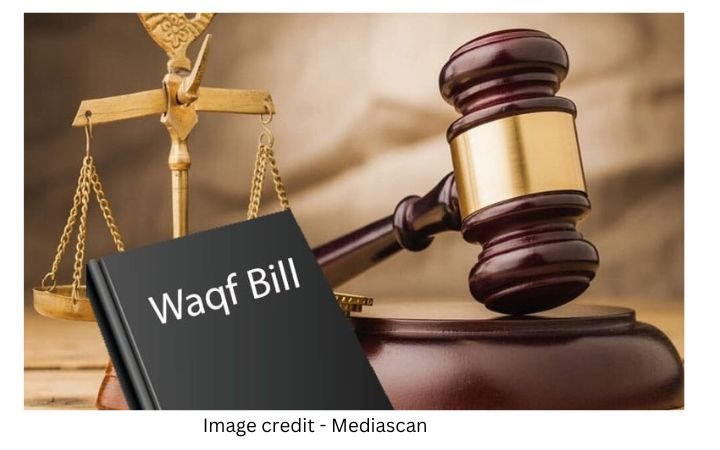Introduction
The Waqf Amendment Bill 2025 is a significant legislative proposal aimed at reforming the administration and governance of Waqf properties in India. Waqf refers to Islamic endowments of property or money for religious or charitable purposes, governed by the Waqf Act, 1995. The proposed amendments seek to enhance transparency, improve management efficiency, and address long-standing issues related to encroachment and misuse of Waqf assets.
However, the bill has sparked controversy, with critics arguing that it could lead to excessive government control over Waqf boards and undermine the autonomy of Muslim religious institutions. This article explores the origin, key changes, and criticisms of the Waqf Amendment Bill 2025.
Origin of the Waqf Amendment Bill 2025
Historical Background of Waqf in India
Waqf properties have been an integral part of India’s socio-religious landscape for centuries. The Waqf Act, 1954, was the first major legislation to regulate these endowments, later replaced by the Waqf Act, 1995, which established Central and State Waqf Boards for better oversight.
Despite these laws, Waqf properties have faced issues such as:
- Encroachment by private entities and government agencies.
- Mismanagement and corruption within Waqf boards.
- Lack of proper documentation, leading to disputes over ownership.
Need for Amendment
The government introduced the Waqf Amendment Bill 2025 to address these challenges by:
- Strengthening accountability in Waqf administration.
- Preventing illegal occupation of Waqf land.
- Digitizing records to improve transparency.
The bill follows recommendations from various committees, including the Sachar Committee Report (2006), which highlighted the poor management of Waqf assets.
Important Modifications to the Waqf Amendment Bill 2025
1. Centralized Digital Waqf Management System
- The bill proposes a national Waqf portal for digitizing all Waqf records.
- Geo-tagging of Waqf properties to prevent illegal encroachment.
- Online monitoring of leases and revenues generated from Waqf assets.
2. Strengthening Waqf Boards
- Enhanced Powers for CEOs: The Chief Executive Officers (CEOs) of State Waqf Boards will have greater authority in decision-making.
- Professional Appointments: The bill mandates the inclusion of legal and financial experts in Waqf boards to improve governance.
- Tenure Limits: Board members may face term limits to prevent prolonged control by a single group.
3. Stricter Penalties for Encroachment
- Increased fines and imprisonment for illegal occupation of Waqf properties.
- Faster eviction processes through special tribunals.
4. Audit and Transparency Measures
- Mandatory annual audits of Waqf boards by the Comptroller and Auditor General (CAG).
- Public disclosure of financial records to ensure accountability.
5. Leasing and Commercial Use of Waqf Land
- Streamlined leasing policies to maximize revenue from Waqf properties.
- Public-private partnerships (PPPs) for developing Waqf land for schools, hospitals, and commercial projects.
6. Dispute Resolution Mechanism
- Fast-track courts for settling Waqf-related disputes.
- Arbitration panels to resolve conflicts without lengthy litigation.
Criticism and Controversies
While the bill aims to improve Waqf management, it has faced opposition from Muslim organizations, legal experts, and opposition parties. Key criticisms include:
1. Excessive Government Control
- Critics argue that the bill gives the central government too much power over Waqf boards, undermining their autonomy.
- Some fear political interference in religious endowments.
2. Exclusion of Community Representation
- The bill reduces the number of elected members in Waqf boards, replacing them with government-nominated officials.
- Muslim groups argue this dilutes community participation in decision-making.
3. Risk of Misuse for Land Acquisition
- Activists warn that the bill could be used to take over Waqf lands for government projects under the guise of “development.”
- Past instances of Waqf land disputes (e.g., the Ayodhya case) have raised concerns about fairness in implementation.
4. Lack of Consultation with Stakeholders
- Muslim leaders claim the bill was drafted without proper consultation with Islamic scholars and Waqf board representatives.
- The All India Muslim Personal Law Board (AIMPLB) has demanded revisions before implementation.
5. Potential for Bureaucratic Delays
- While the bill promises faster dispute resolution, skeptics argue that increased government oversight could lead to more red tape.
Comparative Analysis: Waqf Amendment Bill 2025 vs. Previous Laws
| Aspect | Waqf Act, 1995 | Waqf Amendment Bill 2025 |
|---|---|---|
| Governance | State Waqf Boards with elected members | More government-nominated members |
| Transparency | Limited digital records | Mandatory digitization & CAG audits |
| Encroachment Penalties | Weak enforcement | Stricter fines & imprisonment |
| Leasing Policies | Unclear guidelines | Streamlined leasing & PPP models |
| Dispute Resolution | Lengthy court processes | Fast-track tribunals & arbitration |
Conclusion
The Waqf Amendment Bill 2025 represents a significant step toward modernizing the management of Waqf properties in India. By introducing digital tracking, stricter penalties for encroachment, and professional governance, the bill aims to protect and optimize these religious endowments.
However, the controversies surrounding government control and lack of community representation cannot be ignored. For the bill to succeed, the government must engage in broader consultations with Muslim stakeholders to ensure a balanced approach that respects religious autonomy while enhancing accountability.
If implemented effectively, the amendments could unlock the economic potential of Waqf lands, benefiting both the Muslim community and the nation at large. Yet, without addressing the concerns of critics, the bill risks deepening distrust and legal challenges.










